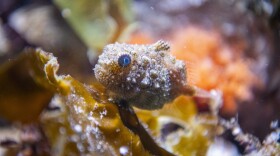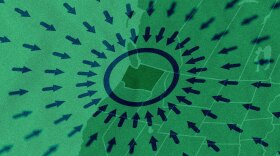Scientists from the University of Washington have managed to get lab mice with Ebola to mimic the symptoms of infected humans. And the findings show genes play a big role in how sick people get.
Scientists want to understand why Ebola makes some people terribly sick and gives others much milder symptoms. Now UW researchers have gotten mice to show a similar range of responses — something that has long eluded scientists. The new development could help them understand exactly how the virus takes its toll, and potentially speed up vaccine and drug development.
UW research assistant professor Angela Rasmussen says the study took place under the highest-level biosecurity conditions around at the Rocky Mountain Laboratories in Montana.
“You’re wearing this space suit. Usually there’s multiple levels of gloves usually duct-taped to the suit, as are boots. So there’s really no route of entry for any pathogen,” Rasmussen said.
Researchers used a carefully-bred population of mice, whose genomes are fully sequenced. By sorting out which mice are responding how, they can look for common denominators.
Rasmussen says that could give scientists a good model for testing drugs, and may even provide a roadmap for how to imitate the genetic patterns of people who weather the infection well.
“We could potentially change a person’s response to an infection so that their genes would behave in a way that was more similar to somebody surviving Ebola virus than somebody who would die of severe disease,” Rasmussen said.
Rasmussen and her colleagues at the Katze lab started this project three years ago — well before the current epidemic. They say the benefits of the research probably won’t come in time to affect this outbreak.
Their findings are published in the journal, "Science."







